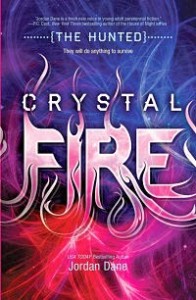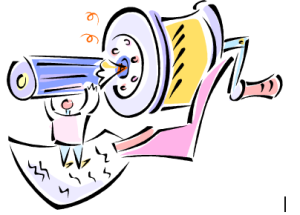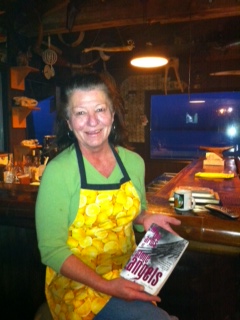I’ve read and heard various posts/discussions on where story ideas come, but for me it starts with one foundational notion—maintaining a fertile active mind. An author’s mind should be a rich soil cultivated for the seed of a story. Many elements can inspire and pique the interest of the author, but it takes a keen sense of storytelling for the seed to germinate into a story the writer wishes to tell. The author must be willing to commit to the project because it will take blood, sweat, and tears to complete the harvest and finish the book.
Five Key Ingredients to Nurture a Story
1.) Cultivate Fertile Ground
An author’s mind must be open to many things, much like a scientist is inquisitive about the world. I’ve found that passing judgment is a barrier to creativity. (What do you think?) Often research nurtures leaps that bound from one topic to the next until something resonates with the writer and the germination of a book idea begins. The “what if” question is a great place to start. Even if an idea or research topic doesn’t seem likely for one story, that research or notion may work for another book. Stay open to possibility. Sometimes it takes several ideas to make a story. Only the author writing the book will know when the combination is “write.”
2.) Stay Thirsty, my Friends
Yes, I’m borrowing the words of “the most interesting man in the world” because the notion fits. An author’s mind must be fluid and should be a sponge for ideas and inspiration. A writer’s constant thirst allows a story to take root and grow. The thirst sustains the writer over a career, but it also enhances his or her quality of life by filling the mind with a passion for learning new things. Flexing the mental muscle keeps the author young, don’t you think? Maybe learning new things allows an author’s brain to fend off age like the movie, “The Curious Case of Benjamin Button.”
3.) Heap on the Fertilizer
Yes, I’m going there. Compost and B.S. It takes a willingness to heap on the bull to push the envelope on what’s being published. Writers can look for trends to write and jump on an already established “band wagon,” but I believe every author has the duty to shove on the edge of the creative envelope. Make projects fun. A writer should be willing to write slightly out of their comfort zone to test their skill. It’s a challenge that can stir greater passion and a sense of accomplishment when the work is done. The story should drive the creativity, even if it takes the book and the author to a new place. If an author writes the type of book they want to read, with a good grasp of author craft, I believe they are the marketplace. Others will want to read the book too.
4.) Know When to Harvest
At some point an author will have to finish those interminable revisions and get on with it. Hiding out in revision hell too long stifles creativity. That never-ending book will become more of an albatross. Get your proposals out and do it in stages while you start something new to keep your mind distracted while waiting. Keep writing and finish what you start. Don’t walk away from writing a book because you lost interest or faith in the project. You will learn more from working out the problem than abandoning a book because that problem could turn out to be a chronic and recurring issue in need of a fix.
5.) Have Patience in Taking Your Crop to Market
Don’t rush the process. Hone your craft and put the time in to make your manuscript flourish. I see too many people rush to self-publishing. bypassing publishers and agents. (I’m in support of self-publishing, so please don’t read into my intent.) Some authors avoid the marketplace (selling a book to a publisher or seeking an agent) because they either don’t know how to do it or they wish to avoid getting that pesky pile of rejection letters. No one likes rejection, but it does build character and cultivates thick rhino skin, which comes in handy even after you’re published. Understanding the marketplace builds on your knowledge of the industry. Sometimes testing your worth in the market will give you much needed feedback. Avoid flying a charter helicopter over NYC and dropping query letters in a blanket snow fall. Be more selective and test a query letter. If it doesn’t provide a nibble or two, try something else and tweak your proposal until you get that “better” form of rejection or a sale.
What say you, TKZers?
1.) What triggers a story in you?
 The latest release from Jordan Dane – Crystal Fire (Harlequin Teen, Dec 2013) The Hunted series.
The latest release from Jordan Dane – Crystal Fire (Harlequin Teen, Dec 2013) The Hunted series.







